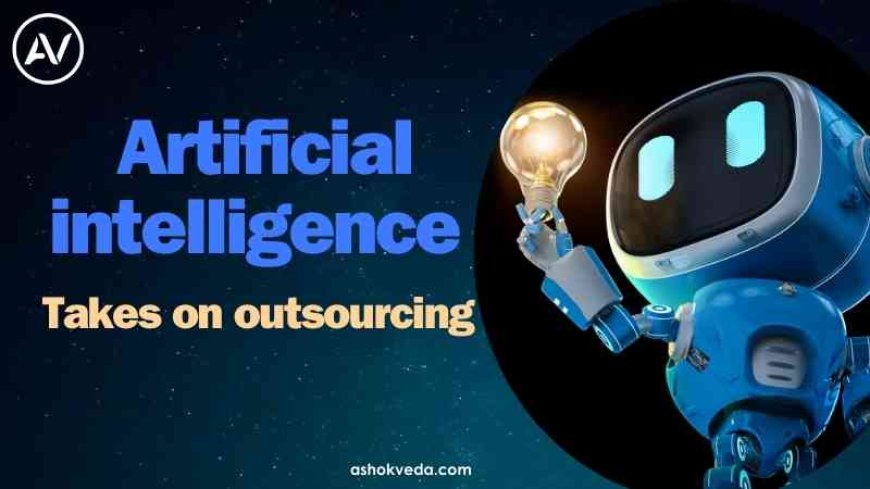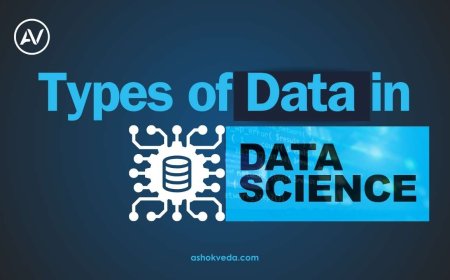Artificial intelligence takes on outsourcing
Artificial intelligence is transforming the outsourcing industry, changing processes and roles through automation and data-driven solutions.

Presently we're going to look at an exciting topic in the corporate world: How Artificial Intelligence Takes On Outsourcing. This isn't just about technology it's a transformation that will impact jobs, businesses, and the global economy. we'll look at how AI impacts outsourcing, covering major technologies such as Machine Learning, Neural Networks, Natural Language Processing (NLP), deep learning, and more. Whether you're new to the subject or an experienced worker, this will provide a thorough introduction in an understandable and welcoming manner.
What is Outsourcing?
Outsourcing is the process of using third parties to handle company operations or services that may otherwise be conducted in-house. Companies frequently outsource to save money, gain access to specialized skills, or increase productivity. Traditionally, common outsourcing options included customer service, IT support, and data analysis. With the introduction of AI, everything is changing greatly, allowing organizations to automate and improve these processes.
The Role of AI in Outsourcing
-
Automation of Repetitive Tasks: One of the key ways artificial intelligence takes on outsourcing is by automating repetitive tasks. For instance, data entry, customer support via chatbots, and even some aspects of accounting can now be handled by AI systems. This allows human workers to focus on more complex, creative tasks.
-
Improved Data Analysis: AI can process vast amounts of data much faster than humans. In outsourcing, this capability is invaluable for tasks like market research, trend analysis, and financial forecasting. AI tools can sift through data to identify patterns and insights that help businesses make informed decisions.
-
Improved Customer Support: While AI can't replace the personal touch of human customer service, it can significantly enhance it. For example, AI-powered systems can handle basic inquiries, provide 24/7 support, and even predict customer needs based on past interactions. This blend of AI and human touch is a new frontier in how artificial intelligence takes on outsourcing.
The Intersection of AI and Outsourcing
As artificial intelligence takes on outsourcing, it brings a variety of innovative technologies into play. Here's an overview of a few important areas:
-
Machine Learning and Deep Learning: These AI subsets use algorithms to learn from data. They play an important role in outsourcing processes such as data mining, predictive analytics, and customer behavior analysis. These technologies help companies to make better decisions by assessing trends and expecting outcomes.
-
Neural Networks: Neural networks, which have been named after the human brain, are utilized in a wide range of applications, including computer vision and speech recognition. Outsourcing allows them to process massive amounts of data quickly, increasing the efficiency and precision of jobs that were previously performed by humans.
-
Natural language processing (NLP): allows computers to understand and interpret human conversation. This technology is particularly effective in customer service outsourcing, where chatbots can handle simple questions while leaving more difficult issues to human agents. NLP can also be used for sentiment analysis, which allows organizations to better comprehend client comments.
-
Cognitive Computing and Intelligent Systems: These systems simulate human thought processes in complex scenarios. In outsourcing, they can be used for decision-making tasks, such as fraud detection in finance or risk assessment in insurance.
-
Robotics and Autonomous Systems: While traditionally associated with manufacturing, robotics is also making inroads into services. Autonomous systems, for instance, can handle tasks ranging from logistics management to automated quality control.
How Artificial Intelligence Promotes Outsourcing
Artificial intelligence takes on outsourcing By improving it in multiple basic ways:
-
Cost Reduction: AI can automate repetitive tasks, reducing the need for human labor and thereby cutting costs. This is particularly evident in areas like data entry, where machines can work faster and more accurately than humans.
-
Scalability: AI systems can easily scale up to handle increased workloads, making them ideal for businesses experiencing growth or seasonal spikes in demand.
-
Improved Accuracy and Efficiency: AI technologies like machine learning and neural networks can analyze data with greater accuracy than humans, reducing errors and improving the quality of work.
-
Enhanced Customer Experience: AI-powered chatbots and NLP systems can provide instant customer support, improving response times and customer satisfaction.
Challenges and Considerations AI in Outsourcing
-
Job Displacement: As artificial intelligence takes on outsourcing, there's a valid concern about job displacement. Automation can reduce the need for human workers in certain roles, raising questions about job security and the future of work.
-
Data Security and Privacy: AI systems often handle sensitive information, making data security a critical concern. Businesses must ensure that their AI systems comply with data protection regulations and safeguard customer data.
-
High Initial Investment: Implementing AI technologies requires significant investment in software, hardware, and training. For many businesses, especially smaller ones, this can be a barrier to adoption.
-
Ethical Considerations: The use of AI in decision-making processes raises ethical questions, particularly around bias and transparency. Companies must ensure that their AI systems are fair and unbiased.
The Future of AI in Outsourcing
Looking in advance, it is clear that artificial intelligence will address outsourcing in increasingly complex ways. Here are several trends to follow
-
Integration with Big Data: As businesses collect more data, AI's ability to process and analyze this information becomes invaluable. This trend is likely to continue, with AI playing a central role in big data strategies.
-
Advancements in Reinforcement Learning: This area of AI, which involves training algorithms through trial and error, has potential applications in dynamic environments like finance and supply chain management.
-
Smart Technologies and AI Applications: From smart homes to smart cities, AI applications are becoming more integrated into everyday life. In outsourcing, this means more advanced and personalized services for customers.
-
Increased Focus on AI Ethics: As the use of AI grows, so does the need for ethical considerations. Companies will need to address issues like bias, transparency, and accountability in their AI systems.
How Businesses Can Adapt AI in Outsourcing
The first step for companies looking forward to including AI in their outsourcing plans is to identify areas where AI may bring the most value. This could involve automating regular tasks, improving consumer interactions, or offering based on data insights. Working with professional AI suppliers can also assist you in managing the complexity of deployment.
Another important aspect is employee training and development. As Artificial Intelligence takes over outsourcing, human workers' jobs will undoubtedly shift. Companies that invest in training programs can help employees adapt to new technologies and stay competitive.
The integration of AI into outsourcing is a changing and continuing process. Artificial intelligence addresses outsourcing in new and challenging ways, using technologies such as natural language processing (NLP), machine learning, and data analysis. As businesses continue to investigate the possibilities of AI, the field of work will alter, creating fresh opportunities for development and innovation. Whether you're a company leader, a technology enthusiast, or simply interested in the future, staying up to date on these trends is important for managing the world of technology





































